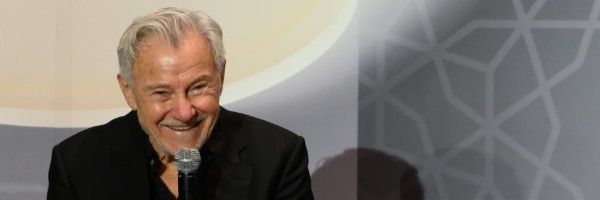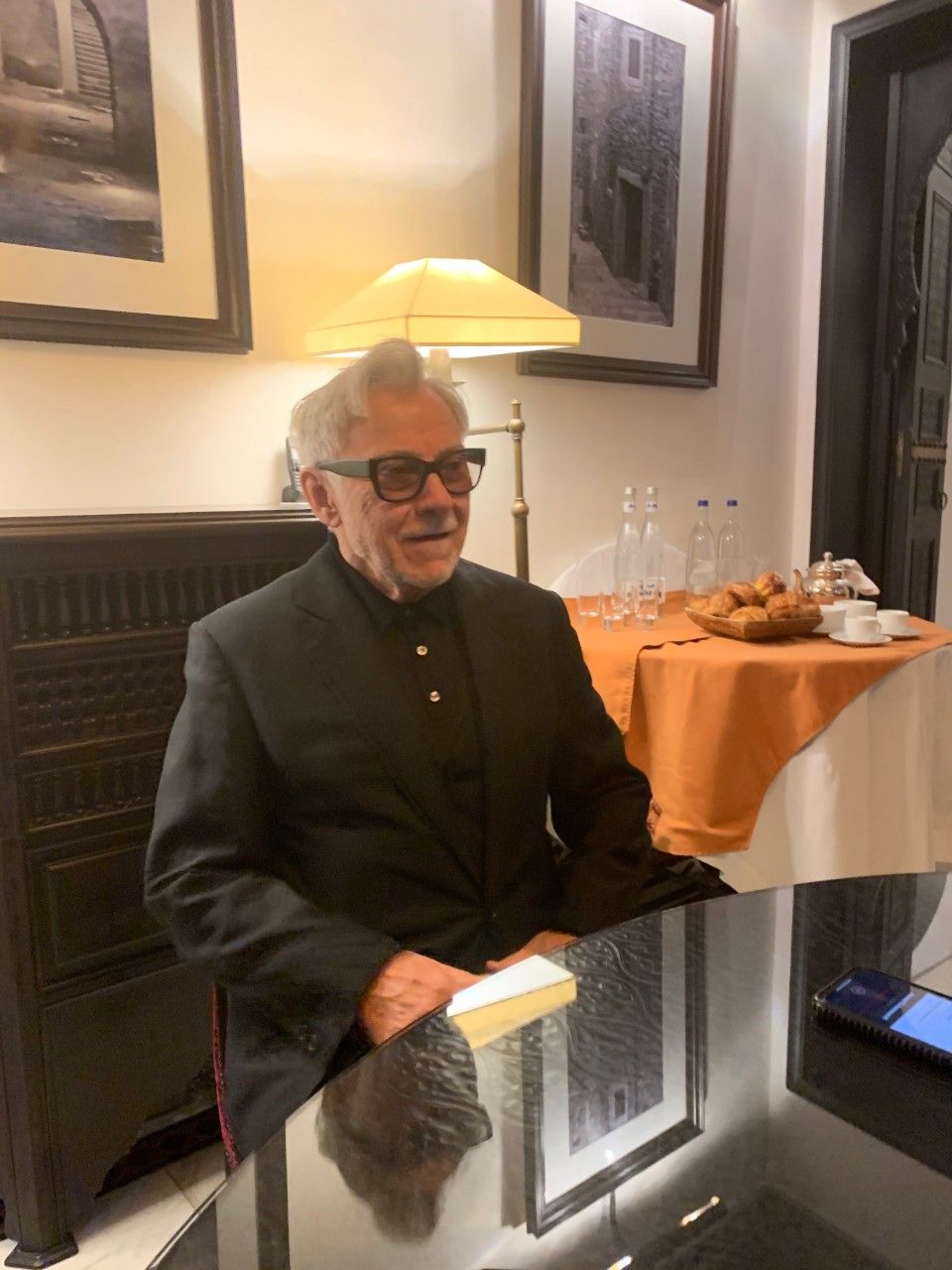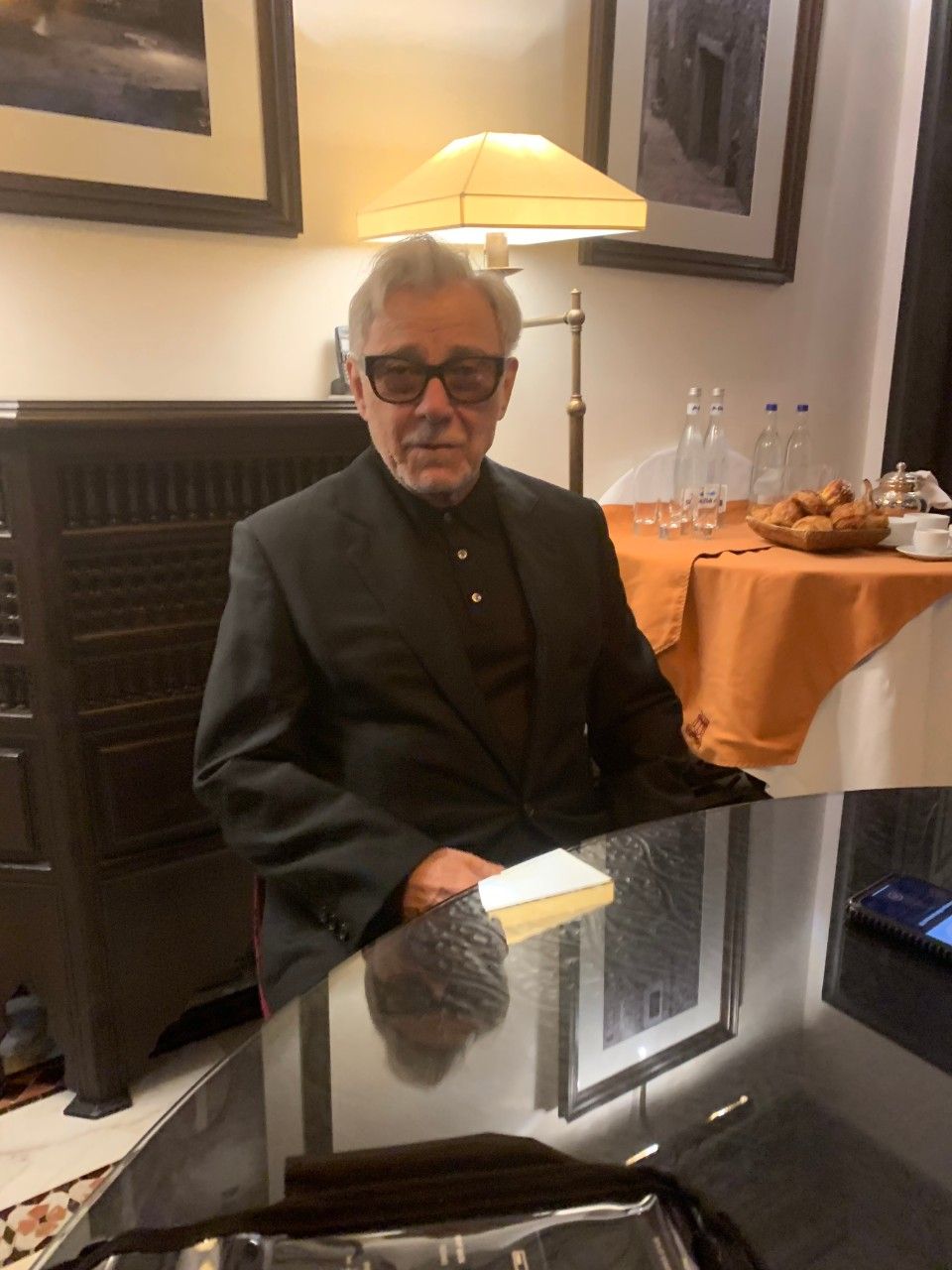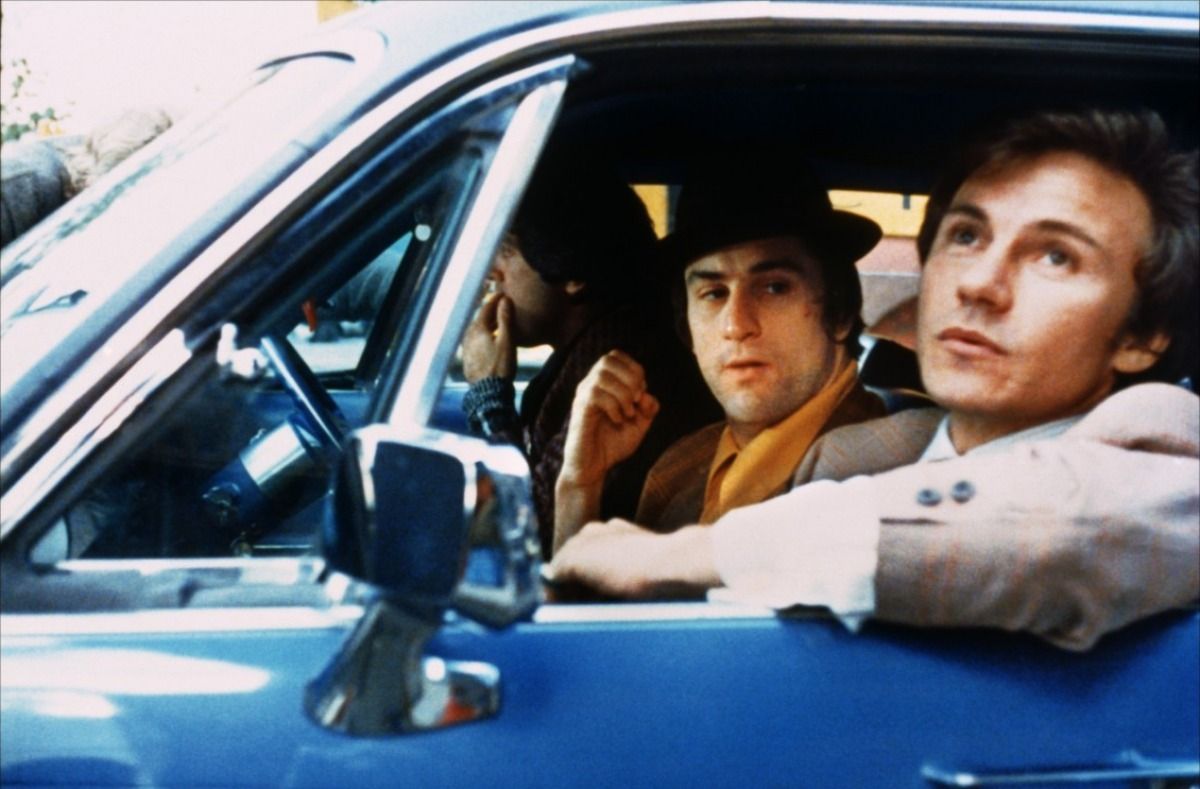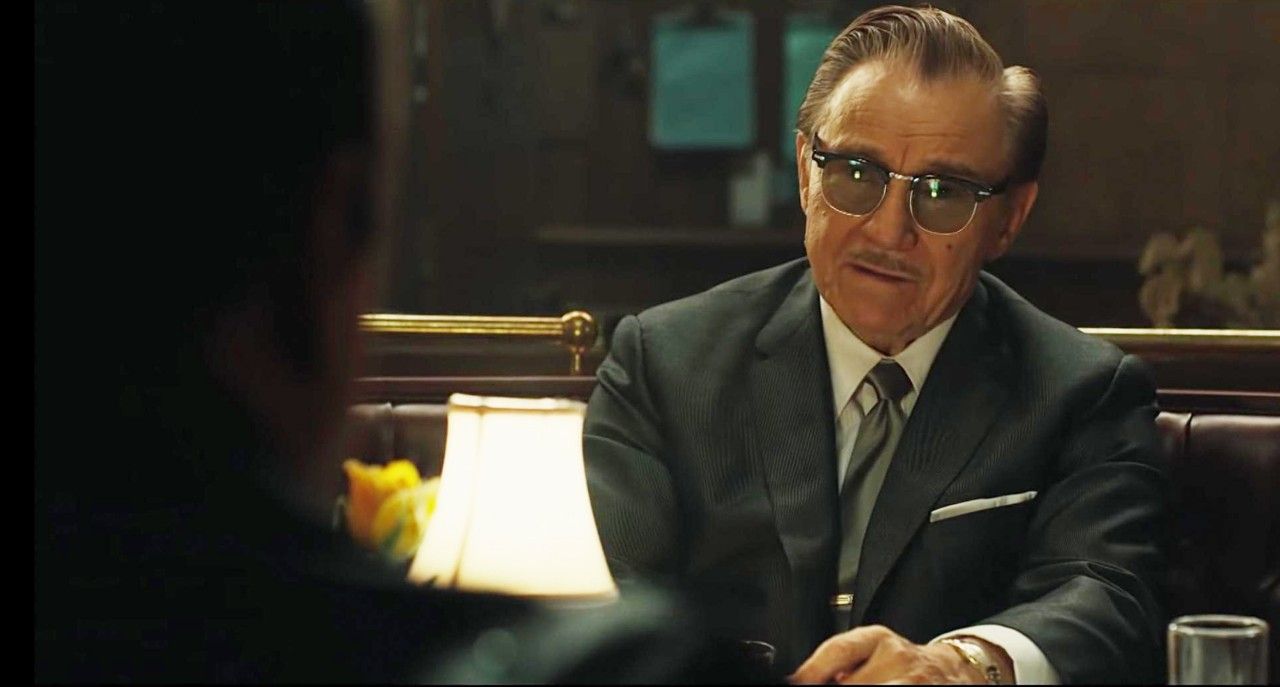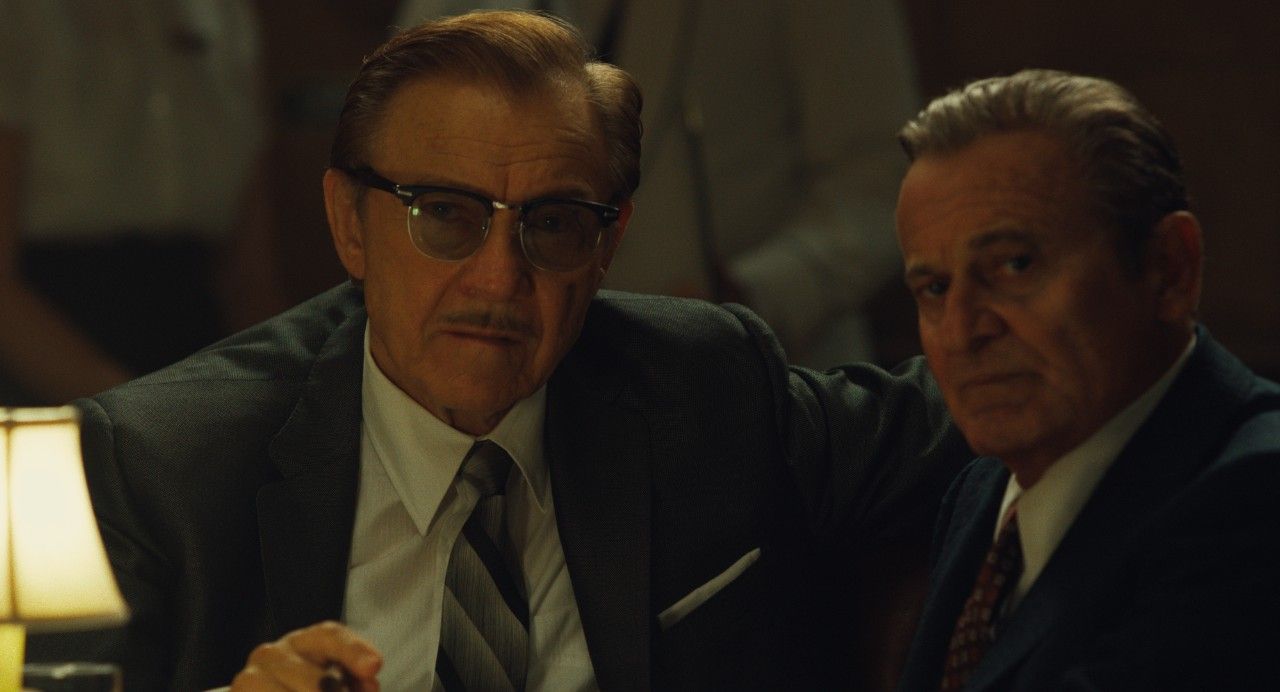Harvey Keitel is at the Marrakech Film Festival to have a Conversation with the locals. He also took time out for a few select press interviews at a villa, or riad, at the luxurious Mamounia Hotel. At 80 he’s obviously older than when I first met him for The Piano in Cannes, though he hasn't lost his trademark spark.
COLLIDER: When we met in Cannes in 1993 I told you that you looked great with your clothes off, referring to your “enhanced physicality."
HARVEY KEITEL: Hahaha, ok baby!
Your answer was, “I bet you say that to all your dates!”
KEITEL: (Laughs)
How do you look back on The Piano, which has just been voted the best film ever directed by a woman in an extensive BBC international critics poll?
KEITEL: It was such a great experience for an actor as part of my journey meeting Jane Campion and working with her and Holly Hunter. Jane is such a special human being. I saw her a month ago in Los Angeles.
Did you ever imagine The Piano would have such an impact in the world of cinema?
KEITEL: Well the script was very good. It was off to a good start.
The year before you had huge success with Reservoir Dogs and Bad Lieutenant, which took your career to a new level. In Bad Lieutenant (where he had an enhanced physicality too of course) you played a very complex character.
KEITEL: He was very complicated emotionally. On the surface he’s very bad but emotionally he’s destroyed. It was a very good script initially written by a woman, Zoe Lund, who also appeared in the film and injected in that (heroin) scene. She was one of the most beautiful, talented people I’ve ever met and she died of a heroin overdose at age 37. She was too young to die. These movies had a huge impact on my life and this young girl certainly did.
How did Bad Lieutenant come about?
KEITEL: I was looking to play the lead in a movie because I’d been playing supporting roles and my attorney was the attorney for Abel Ferrara as well. He introduced me to Abel and he said, “Abel has a lead for you” and I said, “Hurray!” So he sent me the script and I said, “What the hell is this?” It was thin and the print was large. I was at the Chateau Marmont in Los Angeles and I threw it in the garbage. I was feeling sorry for myself, “Damn it! Damn it! I can’t get a lead part!” I thought I’d better take it out of the garbage because it is a lead after all. I looked at it more carefully and I came to the part of the nun, it was completely written out by hand, but the rest of the script was just noted by Zoe and Abel. We improvised the rest. She wrote that part so beautifully that I understood the bad lieutenant through the way she wrote the nun. That's why I agreed to do the movie and it was one of the greatest experiences I’ve had.
How you came to work with Quentin Tarantino on his breakthrough Reservoir Dogs is also interesting.
KEITEL: Another woman, a colleague of mine from the Actors Studio called me one day: “Harvey I have a script I think you’ll like.” And I liked it. They couldn't raise money for that movie. Nobody wanted to make it.
So you co-produced it?
KEITEL: Well yes. My name being attached to it raised the money. I wasn’t looking for a successful director, I was looking for an experience of life where I felt I could learn something about who I am, where the hell I’m going and if I’m going to get there.
I’ve read that your biggest regret was not having an education.
KEITEL: I’m fond of telling people, young people in particular, that I wouldn't want to change anything in my life. But the one thing I would change if I could, would be to finish my high school education and go on to college instead of starting my life when I was 17 in the marines--even if that was a great experience for three years.
It gave you that great body!
KEITEL: If anyone joined the marines you’ll have a great body, I promise you-- whether you want it or not!
Why didn't you have an education?
KEITEL: I came from a lower middle class home, I was looking to be somebody, to feel like somebody and unfortunately I got myself thrown out of high school when I was 16. Two close friends of mine also quit school and we were 16 year-old men walking the streets of Brooklyn. We all joined the marines looking for some heroic journey. They are great friends to this day.
You became known via Martin Scorsese’s movies Mean Streets and Taxi Driver and now have a small role in The Irishman.
KEITEL: Ha ha! All I have to say is that Konstantin Stanislavski said there are no small parts, only small actors. So I simply say I’m in the movie The Irishman.
What is Scorsese’s best quality?
KEITEL: Marty is from the streets of the Lower East Side of New York, from Little Italy. His upbringing is very similar to mine except for the fact that he stayed in school and went to college and studied film. But as far as our parentage goes it’s almost like we’re twins. His is from an Italian American background; my background is Romanian Jewish. Where I grew up in Coney Island it was a melting pot of people from all over the world back then in the 50s. Marty is just a very nice guy, a very simple guy and he was as frightened as I was about being in the world. So we sort of held each other’s hand as we walked down those mean streets. (chuckles)
The first time working with Scorsese was on Who’s That Knocking at My Door.
KEITEL: That was his college film. Mean Streets was his first professional film.
In Mean Streets you and Robert De Niro were playing these characters who are trying to be somebody on the streets of Little Italy. Were you playing the same character as in Who’s That Knocking at My Door?
KEITEL: Yes. Marty made that 35 mm film on weekends all through the winter. He was at school and I was selling shoes in New York. One day he asked me to come and watch a scene he cut together at the screening room at NYU. It was the scene where the Charlie character is walking through the church and Marty flashes on all these icons, close-ups of all the religious figures. It was the first screening room I’d been in to see a film and all of a sudden, boom, the song comes on Who’s That Knocking at My Door? and I was getting the chills. I said, “My goodness this guy is really talented”.
In Taxi Driver Scorsese wanted to cast you as the campaign director, but it was you who asked to play the pimp. Why?
KEITEL: The campaign director was a good part. Albert Brooks played that and he did it very well and the part of the pimp had only five lines originally. At the time I was living in Hell’s Kitchen and when I used to walk home at night after having drinks with my fellow actors and actresses and talking about how the hell we were going to make it in this business, I would always walk home past these pimps and prostitutes along 10th Avenue. So I knew the pimps and I knew the girls. There was this pimp dressed just the way I did in the movie and I took everything I saw from him.
How would you summarize your career?
KEITEL: I’ve worked hard and I studied hard. I was lucky to meet the greats in New York, great acting teachers, great actors. But I did get very lucky. We all need luck in life and it’s not a commodity you can order up.
When De Niro and Scorsese were here last year they said the biggest change in cinema is that there are fewer big screens and that movies are now often on streaming services like Netflix.
KEITEL: Marty says he could not have gotten The Irishman made but for the good graces of Netflix. No studio, nobody wanted to do it, so there’s a good example of what’s happening. The fact that we’re losing cinemas we’re all a bit sad about. For me personally I think that's what change is, we evolve. But I am concerned because Marty and Robert and people like us grew up in the 50s in New York when the theatre was really powerful. On Broadway you had these greats working like Elia Kazan, Arthur Miller and Tennessee Williams and all these people who first formed the Method in New York. These people were gung-ho about honesty in the theatre and that’s how we all grew up, to be authentic on stage. That was the most important thing to us.
Is there authenticity around now? Yes. Could there be more? I’d say yes. Hollywood is a great creation and when I was a young actor I used to think it needed to be destroyed, but I don't any more. I think it needs to be reformed. What it’s accomplished has been sensational around the world but the integrity of it can get quite loose at times.
You turned 80 in May.
KEITEL: I like to say I’m in my 7s. Hey I’m allowed something before you all shoot me. I’m allowed last words aren’t it?
Should Tarantino or Scorsese win the Oscar?
KEITEL: I think I should! [He was nominated in 1992 as Best Supporting Actor for Bugsy.]
It’s about time.
KEITEL: I’m not in the running but I’ll take one. Wouldn’t it be funny if I got one? But if they would give me an Oscar for congrats for a career I don’t want it, a life achievement award.
Why wouldn't you want it?
KEITEL: Think about it. I think it's a little late. I’d prefer they put something nice on my tombstone.

